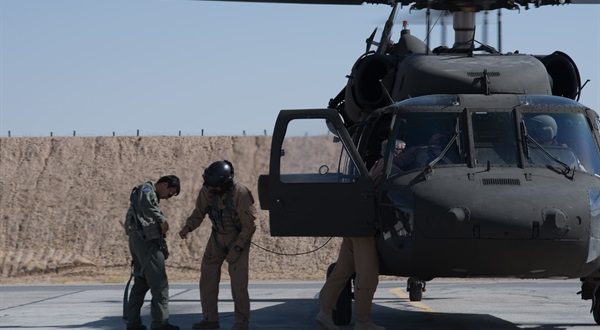Exclusive: Afghan Pilots Tell Of Daring Escape From The Taliban, And Of Life In Limbo In Tajikistan RFE
On the banks of a mountain river outside Tajikistan’s capital, in a resort area teeming with hotels and dachas, stands a modern, two-story building flanked by towering trees and lattice fence panels.
The state-owned sanatorium near Dushanbe is usually reserved for high-ranking Tajik officials who flock there on weekends or for short vacations.
But since September 1 the sanatorium has housed scores of Afghan military personnel and their families who fled Afghanistan after the Taliban seized power in August. The group includes U.S.-trained pilots, air-traffic controllers, and engineers.
The 143 Afghans landed at Bokhtar Airport in southern Tajikistan late on August 15, just hours after the collapse of the Western-backed Afghan government and the Taliban’s capture of the Afghan capital, Kabul.
But two months after they escaped the Taliban takeover, the pilots are in limbo. They hoped the United States would fly them out of Tajikistan. But that has been repeatedly delayed, with Tajik authorities declining to offer any reasons.
The pilots, who spoke to RFE/RL on condition of anonymity, said they flew across Afghanistan’s northern border to Tajikistan aboard 17 military aircraft, including 11 Cessna 208 Caravans, three AC-208 Combat Caravans, and three Pilatus PC-12s that belonged to the Afghan Air Force.
Several of the Afghan personnel told RFE/RL that they had virtually no contact with the outside world since they arrived in Tajikistan, including with their family members in Afghanistan. Tajik authorities have confiscated their Afghan identification documents, mobile phones, and “private weapons,” they said.
The group spent two weeks at a student dormitory in the southern city of Bokhtar, near the border with Afghanistan, before they were transferred to the sanatorium near Dushanbe.
The group, which includes two female military pilots, said they do not want to remain in Tajikistan and hope to resettle in the United States.
The Afghans said “no Americans” have visited or contacted them since they arrived in Tajikistan.
But a State Department spokesperson told RFE/RL on October 7 that U.S. Embassy staff in Dushanbe have visited the sanatorium where the Afghans reside.
Asked if U.S. officials have discussed the situation of the Afghans with Tajik authorities, the spokesperson said they were “in regular communication” with the Tajik government and that “part of those communications includes coordination in response to Afghan Air Force pilots in Tajikistan.”
Crowded Rooms, Bad Food
The group of Afghans complained about living in uncertainty and despair. They said they wanted “the whole world to hear” of their plight.
The men spoke about what they described as crowded rooms, shortages of shower and washing facilities, and limited access to proper medical care. The food, they said, was mainly limited to “squash and cabbage.”
“The place we are living is not suitable for us,” said one of the pilots. “The food is bad. Nobody eats it. We make our owns salads instead.”
Another pilot said that up to seven people were living in each room at the sanatorium.
“The rooms are cold,” said the pilot, saying many of them did not have warm clothes.
“We had to leave Kabul abruptly,” he said, adding that many of them left with only the clothes on their backs.
Tajik authorities have deployed medical personnel to the sanatorium.
But one of the two female pilots — a 27-year-old who is nine months pregnant — said there are no female doctors at the sanatorium and the nearest hospital is an hour away.
The woman was taken to a maternity hospital late on October 6. Hospital officials told RFE/RL on October 7 that she “has underwent all the necessary medical examinations” and “is in good condition.”
The mother-to-be was expected to stay at the hospital until she gives birth in November, said a high-ranking hospital official who spoke on condition of anonymity because they were not authorized to speak to the media.
Tajik officials have defended the conditions at the sanatorium.
“We have made available adequate and proper conditions for the pilots in the best place [we have] and we provide them with everything from food to medicines,” Nusratullo Mahmudzoda, a spokesman for the Interior Ministry, told RFE/RL on October 7.
‘Amnesty For All’
During the Taliban’s takeover of Kabul, a separate group of Afghan pilots escaped to Uzbekistan aboard dozens of government military planes. They have since moved to the United Arab Emirates.
The new Taliban-led government has demanded that Tajikistan and Uzbekistan return the pilots and the military aircraft to Afghanistan. It has urged the pilots to return to Afghanistan and serve their homeland.
Zabihullah Mujahid, a Taliban spokesman, said the Afghan pilots in Tajikistan would not face any reprisals if they returned home.
“We have given an amnesty for all of those who were against us. Nobody is under any threat [from the Taliban],” Mujahid told RFE/RL. “I give full reassurance to [the pilots] that we have no problem with them.”
But many of the pilots fear they could be killed if they returned to their homeland.
Before it retook power, the Taliban targeted and killed off-duty Afghan pilots, to blunt the Afghan Air Force.
Since regaining power, human rights groups have accused the Taliban of summarily executing, torturing, and imprisoning former members of Afghanistan’s security forces.
 Soldier of Fortune Magazine The Journal of Professional Adventurers
Soldier of Fortune Magazine The Journal of Professional Adventurers






